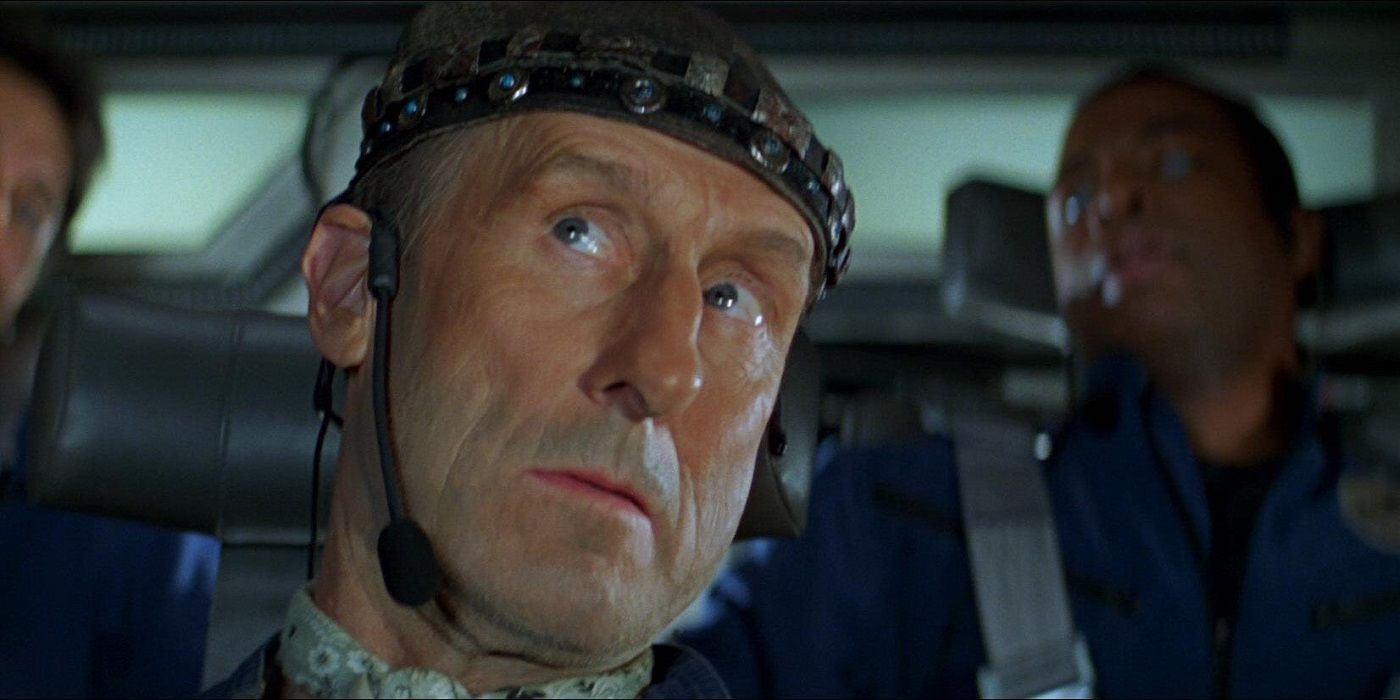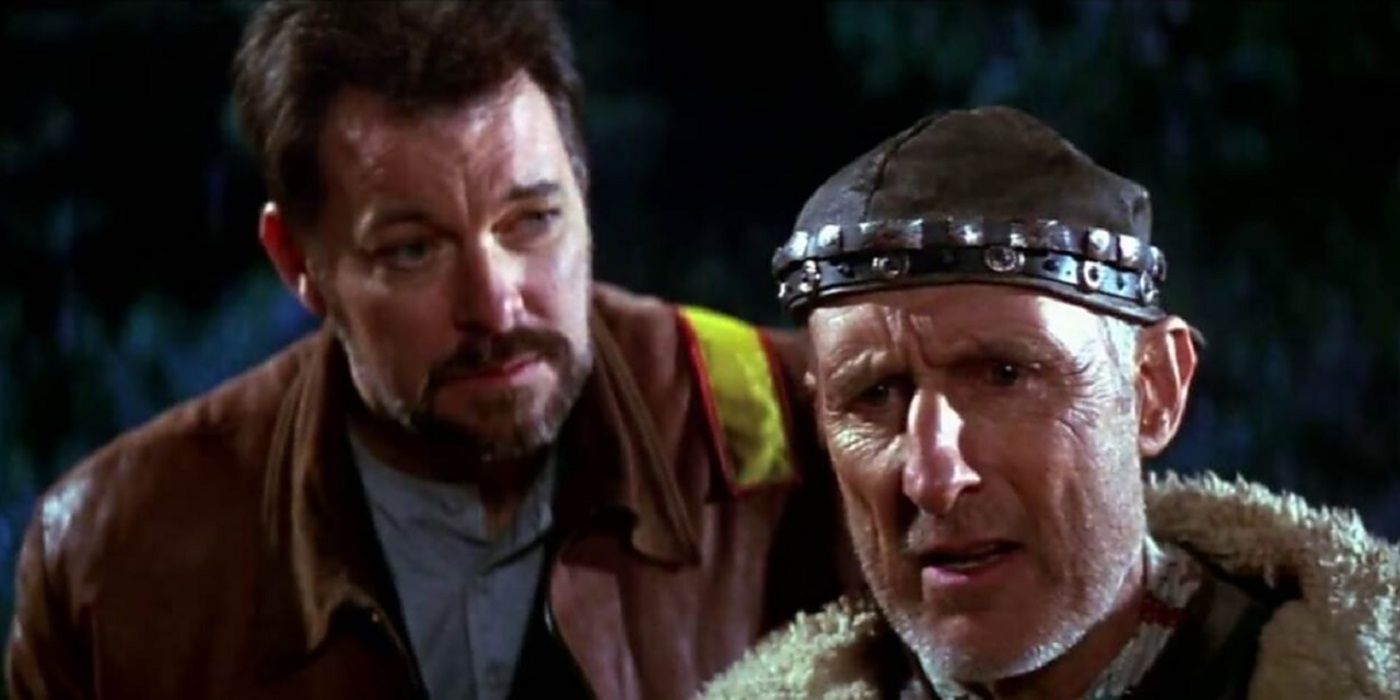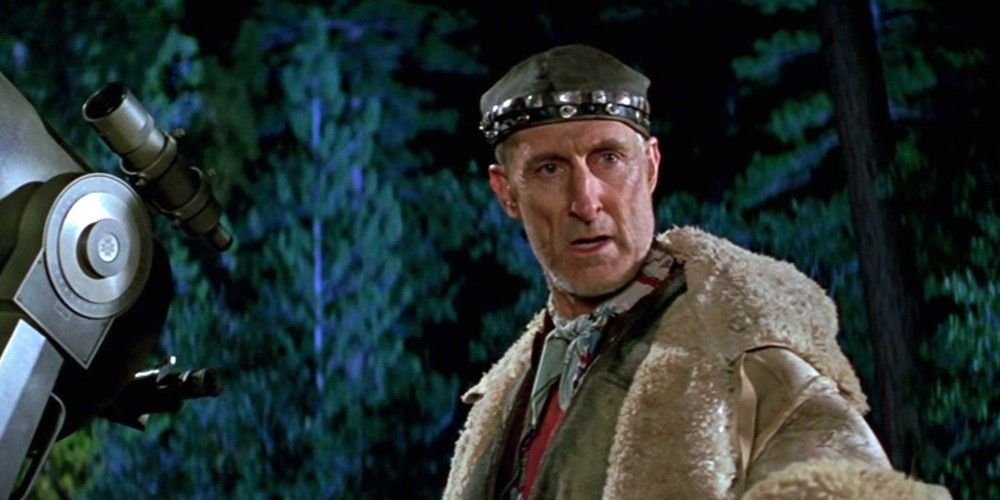
Star Trek: First Contact is one of the indisputable high points of the franchise, a cinematic classic routinely ranked at the top of Star Trek’s various movies. And yet there’s an odd little irony in its name. As fans have wryly pointed out, very little in First Contact is actually the “first” anything. The titular event refers to April 5, 2063: the day Zefram Cochrane breaks the light speed barrier and the Vulcans land on Earth for the first time. It’s a monumental event in Star Trek, but it’s far from the first time humans and aliens have made contact in the timeline. Nearly every Trek series until that point entailed time-travel back to Earth of the past, where all manner of inhuman species were encountered. Nor was First Contact the first appearance of the Borg, the first use of a new Enterprise, the first appearance of either James Cromwell or Zefram Cochrane in the franchise or even the first movie to feature the cast of Star Trek: The Next Generation.
It does feature one important first, however, and while it's a comparatively small moment in the movie, it’s worth noting in and of itself. In the almost thirty years previous to First Contact, no character had ever actually spoke the name of the franchise onscreen. Cromwell changed that, and while it’s hardly a transformative moment in Star Trek, it’s still a strange and wonderful piece of trivia.

Gene Roddenberry famously pitched the show as “Wagon Train to the stars,” referring to a popular television Western at the time. The title was intended to evoke Westerns in general, which dominated the airwaves and which often entailed themes of exploration and discovery. The “trek” part referred to the fact that the show’s heroes would constantly move from place to place, arriving at a new destination each week where the episode's drama would play out.
It was an easy way to convey the show’s central premise, and with the title card placed at the very end of William Shatner’s famous voiceover opening narrative each week, it was ideal for quickly conveying what audiences might be in for. In the days of syndication, with no real recording or replay options, new viewers needed to be brought quickly up to speed. The title made a swift, easy-to-remember means of encapsulating the lengthy exposition that preceded it.

In fact, it did its job so well that no one onscreen needed to say it. With the Enterprise’s mission clear, the crew could delve into the specifics of each week’s plot without needing to refer back to it. It simply wasn’t mentioned, nor was their any specific cause to do so. That trend continued through the run of The Original Series and the entirety of The Next Generation without being broken. The closest moment came in the series finale of The Next Generation, “All Good Things…” where Q tells Picard that “It's time to put an end to your trek through the stars.”
First Contact deliberately and explicitly breaks the trend, and finds a smart moment to do it. The crew of the Enterprise-E travel back to First Contact Day to stop the Borg from assimilating humanity before Cochrane can take his historic flight. In the process, they’re forced to reveal their purpose to him, explaining future events such as the formation of the Federation and Starfleet’s mission to explore outer space. Cochrane, struggling to absorb the fantastic details, saying, “you people, you're all astronauts, on some kind of star trek?"
It’s indicative of the film’s knowing humor, and it proved such a big hit that Paramount used the line in First Contact’s trailer. Cochrane, as both an outsider and the scientist who kicks the whole “trek” off, is the perfect choice to utter the line, and its nonchalant nature allows First Contact to make the joke work and the plot to proceed without tripping over its own cleverness. Star Trek hasn’t been inclined to repeat the joke, which is probably smart. As it stands, it’s a little Easter egg in one of the franchise’s very best outings, and one of the few actual “firsts” in a movie that literally takes its name from it.
0 Comments